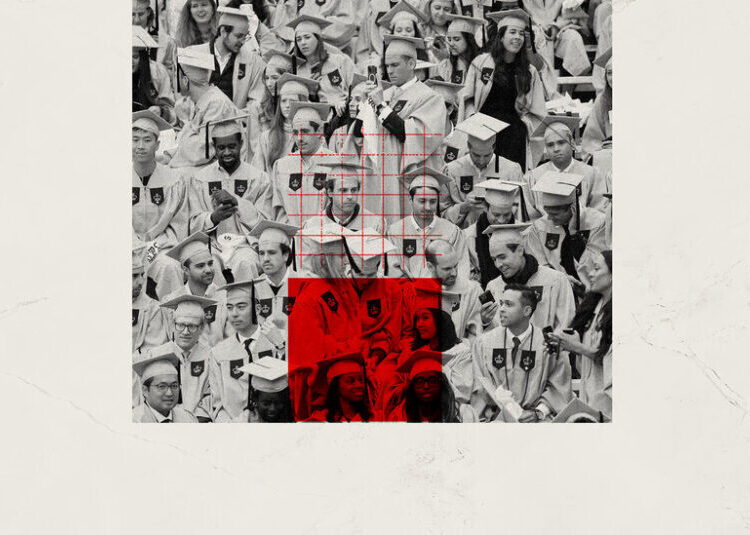A year ago, Traedana Odom didn’t like to go out much. She was struggling with depression, lived more than an hour away from her family, and mostly left the house to catch a movie or go to her medical appointments.
That changed last December, when her doctor suggested she try something new, and connected her to the Art Pharmacy. It’s a new company that connects healthcare organizations and community groups with the goal of bolstering patients’ participation in social and artistic activities that can benefit their health. A play was the first of a dozen “doses” of the arts prescribed to the 35-year-old. She’s since joined a monthly paint-and-sip style class, and says they’ve “got me opening up.” She’s laughing with strangers and coming out of her shell, and says her depression has lessened. “Before I started the Art Pharmacy, I really didn’t want to befriend anyone,” she tells me. “I’m actually getting out of the house more, and I actually made a friend at one of the events.”
Doctors have for years dolled out healthy lifestyle orders: exercise regularly and keep a nutritious diet. They might ask basic questions about depression, anxiety, and loneliness, but have had few resources to fix the latter. There’s often little follow up or assistance to help people access social activities or exercise — both of which can boost their moods and benefit health.
But through a growing movement called “social prescribing,” more physicians are making these types of recommendations. In social prescribing, doctors and other healthcare professionals give their patients specific referrals to a community service or person that prescribes the patient to partake in an activity that best suits their needs. It could be a knitting group, a dance class, or a run club. Since its founding in 2022, the Georgia-based Art Pharmacy has expanded to nine states, and has some 35,000 activities available for people to partake in over the next six weeks, Chris Appleton, Art Pharmacy’s founder, tells me.
In our ever-atomized age, a book club could be just what the doctor ordered.
The movement is fueled by “the dual mental health and loneliness crises that maybe were exacerbated by the pandemic and made more visible,” Appleton says. Former U.S. Surgeon General Vivek Murthy declared loneliness a health epidemic in 2023. There’s also a supply-demand issue for mental health professionals, which gives alternative treatments their own appeal. Across the US, only 26% of the need for mental health care is met, and the US would need some 6,200 more practitioners to meet the demand, according to an analysis from health research firm KFF.
The movement has been embraced by the UK for a few decades. In 2023, an estimated 1.3 million people in the UK received social prescriptions, according to a study from University College London researchers. According to the UK’s National Academy for Social Prescribing, more than 3,000 people in England serve as “link workers” — these are the people doctors refer patients to, who then help patients figure out and find programs that best suit them. That can involve speaking to the patient and searching for programs that fit their interests, lifestyle, and their comfort level. In some ways, they act like social workers or community organizers.
While less established, social prescribing programs have popped up across North America increasingly over the past three years. As of last month, the Montreal Symphony Orchestra will give two free concert tickets to patients who call in with prescriptions from doctors. There are nonprofit studios offering dance classes for people with Alzheimer’s and Parkinson’s in Los Angeles, and Stanford University began a partnership with Art Pharmacy last year that provides students with experiences like poetry workshops and tickets to art museums.
Two paths are emerging on how to address the loneliness crisis: one in finding companionship in code, the other in community.
Access to these programs, however, is sparse. Social Prescribing USA, an organization that began promoting the practice across the US in 2022, is tracking known programs, and a map of activities across the country shows the programs that are typically concentrated in cities (from horticultural groups to hiking clubs to performances), especially along the coasts, while no formal programs are identified in central and many rural parts of the country. It’s a slow process to expand access and shift the way doctors think about assessing loneliness and suggesting alternative treatments for conditions like diabetes, heart disease, and neurological conditions.
The programs are typically low-risk to try and could potentially benefit anyone, but there aren’t enough yet to fully meet the need. “We’ll be working with the highest risk populations, but I’m hoping that eventually this really gets baked into the healthcare system as a way to address all of these things and that it’s a different way of thinking,” says Alan Siegel, a family doctor and the executive director of Social Prescribing USA. But one person’s therapeutic nature walk could be another person’s nightmare trek through the woods. Social prescribing is so individualized that finding successful programs for people depends on trial and error. Appleton tells me that participants with Art Pharmacy are assessed after each activity they attend using standardized questionnaires on depression and anxiety, along with a loneliness scale developed by UCLA, the World Health Organization’s Five Well-Being Index, and progress toward individual health goals.
A study published in 2024 by the Canadian Institute for Social Prescribing found that participation in programs led to reduced hospitalizations, fewer doctor visits for mental health care for adolescents, higher rates of employment, and lower rates of stroke and heart disease — which could lead every dollar invested in social prescribing programs to have a $4.43 return across society. Another study out of the UK found that a program focused on horticulture and therapeutic crafting led to a return of £3.30 to £4.70 for every £1 invested. The World Health Organization established a commission on social connection in 2023, with the goal of making loneliness a global health priority. In a June report, the commission noted that there have been some social prescribing programs found to abate loneliness and isolation, but small sample sizes and differences in programs have not provided enough data to widely declare their benefits.
While the social prescribing trend grows slowly and quietly, some of the loudest voices addressing the loneliness epidemic are AI evangelists hyping the tech’s ability to simulate connection. Founder of the AI friend necklace, Avi Schiffmann, insists “people underlyingly want” to wear recording devices around their necks that allow them to speak as a sort of quasi-therapist, quasi-friend to combat loneliness. Meta is pitching chatbot characters as its next phase of online friendship. OpenAI will soon give ChatGPT users the ability to generate erotic content. People have grown attached to AI pets, AI girlfriends, AI therapists, many of which act like sycophants — ever affirming, ever available. All of these are proposed quick fixes, largely unstudied and unvetted, that are built as omnipresent distractions from loneliness, anxiety, and isolation. They’re designed to build habits where people engage repeatedly with the tech, and to turn profits for tech companies.
As Mark Zuckerberg said earlier this year, “there are all these things that are better about physical connections when you can have them. But the reality is that people just don’t have the connections, and they feel more alone a lot of the time than they would like.” The idea of chatbot pals isn’t to wean people off of them and throw people back into IRL social circles, but provide a new type of companion. Social prescribing, by contrast, intends to help people with diagnosed medical conditions or those who are isolated through a tough period, but with the larger goal of long-term healing and a continued involvement in their community.
“Calling this phenomenon loneliness really individualizes something that is a social phenomenon,” says Kate Mulligan, scientific director of the Canadian Institute for Social Prescribing. “Having AI chatbots does absolutely nothing for the social phenomenon of disconnection, polarization, and the lack of social participation and cohesion.”
Two distinct, diverging paths are emerging on how to address the loneliness crisis: one in finding companionship in code, the other in in community. There may be a third way: AI can help pair people together to meet in person, or take notes for doctors and analyze them, potentially uncovering who might benefit the most from social prescribing programs. The tools can help small community centers become more efficient and analyze records to find gaps in care. “There are tons of things that AI could be doing that are really helpful, that are not the one thing that we need most,” Mulligan says. “They can’t replace the human connection.”
Amanda Hoover is a senior correspondent at Business Insider covering the tech industry. She writes about the biggest tech companies and trends.
Read the original article on Business Insider
The post Your next doctor visit may include a prescription for a book club appeared first on Business Insider.




